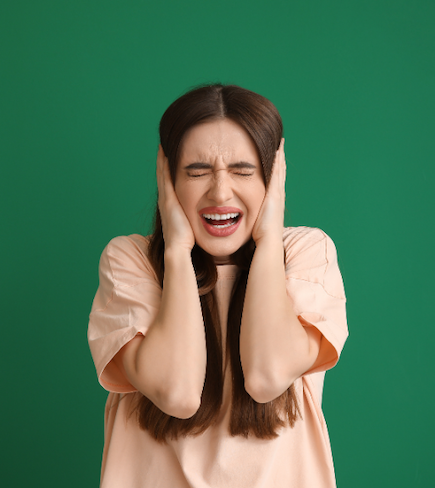Tips from CAPS: Coping with overstimulation in a chaotic world
by Drew Stapleton, MSW Intern from WSU School of Social Work
Last week, we covered utilizing the breath to mitigate feelings of anxiety. We will stick with the theme of anxiety today, because it is such a common human experience (an estimated 31% of U.S. adults will experience an anxiety disorder at some point in their lives) and is an especially common experience for college students.
Last week we examined anxiety’s impacts on our minds and bodies, and today we will look at an environmental stressor that can lead to anxiety that almost everyone experiences, even if it escapes our conscious awareness: overstimulation.
The type of stimulation I am referring to is not stimulation that comes from ingesting a substance like caffeine or other stimulant (although those substances can lead to feelings of anxiety too), but environmental stimulus. This could include a wide range of experiences: watching TV, listening to music, or attending a party or social event, to name a few.
Even walking along the street in a busy city like Detroit can be a very stimulating experience. You will see all different types of people, hear noises from sirens and traffic, and take notice of store fronts, billboards, and other items competing for your attention. Not to mention that our phones, which we almost always carry with us, provide personalized, on-demand, stimulating content whenever we want it.
Stimulation is not inherently bad. Some of our most valuable and enjoyable experiences can be quite stimulating, like having a lively conversation with friends or family, attending a concert or sporting event, playing a game, or traveling to new places. However, overstimulation can lead to feelings of anxiety, and can be exceptionally difficult to avoid in modern life.
Technology, urban environments and modern living in general place exceptional demands on our time, energy and focus. Forces that can be hard to recognize are constantly competing for our attention.
A day in the life of a typical college student might look something like this: We wake up and immediately check our phones, which alert us to texts, emails, social media notifications and news updates we missed while we were sleeping. Perhaps we turn on some music or a podcast to get ready for our day. We travel to campus through highway traffic or the noise of the city, where we get to class and listen to a lecture, engage with our classmates, and apply our focus and attention to learning new material. After our day has ended, perhaps we go to the gym, hang out with friends or attend a campus event. When we get home, we talk with our roommates, complete unfinished homework, then maybe watch Netflix until we fall asleep.
This constant state of stimulation creates all kinds of tension in our brains and bodies, including overworking our prefrontal cortexes, the part of our brains that processes input from our surroundings, comparing them to past experiences, making sense of them, judging them and reacting to them. This tension and fatigue can lead to feelings of anxiety.
So what should we do about this? Three ideas:
- First of all, be kind to yourself! Many of us judge ourselves when we feel we don’t react to these stimuli appropriately — if we don’t respond to texts on time, struggle to meet deadlines or feel like we aren’t performing at our best. This self-criticism only further exacerbates feelings of anxiety. The war for your attention is not your fault.
- See if you can find somewhere completely quiet. This could be a park or nature center, a study room or empty classroom, or a library, for example. Sit down and do nothing. Just sit and breathe. Constant exposure to stimulation can create an impulse or desire for more stimulation, so if this feels uncomfortable at first; that is perfectly OK. Be patient. Even sitting quietly for a few minutes can help us re-center.
- If doing absolutely nothing feels too uncomfortable, try something like drawing, writing or reading in an environment with no distractions. Gently focus your attention on this single task without any expectations. It might be a good idea to turn off your phone or put it somewhere you can’t directly access it, like a separate room in your house or apartment.
CAPS is here for you
WSU Applebaum offers dedicated Counseling and Psychological Services support to students on a group or individual basis. If you are interested in participating in CAPS services that can help, call 313-577-3243 or write to capsapplebaum@wayne.edu. If you are struggling after 5 p.m. or during a weekend, holiday or university closure, call the CAPS Afterhours Program at 313-577-CAPS.
An anchor in urban health care
The Eugene Applebaum College of Pharmacy and Health Sciences is built on more than 100 years of tradition and innovation in the heart of Detroit. We have grown deep roots in our city, harnessing its powerhouse hospital systems and community service organizations as vibrant, real-world training grounds for students, with an ongoing focus on social justice in health care. And our research at all levels — from undergraduates to veteran faculty members — translates into creative solutions for healthier communities.
Wayne State University is a premier urban research institution offering approximately 350 academic programs through 13 schools and colleges to nearly 24,000 students.